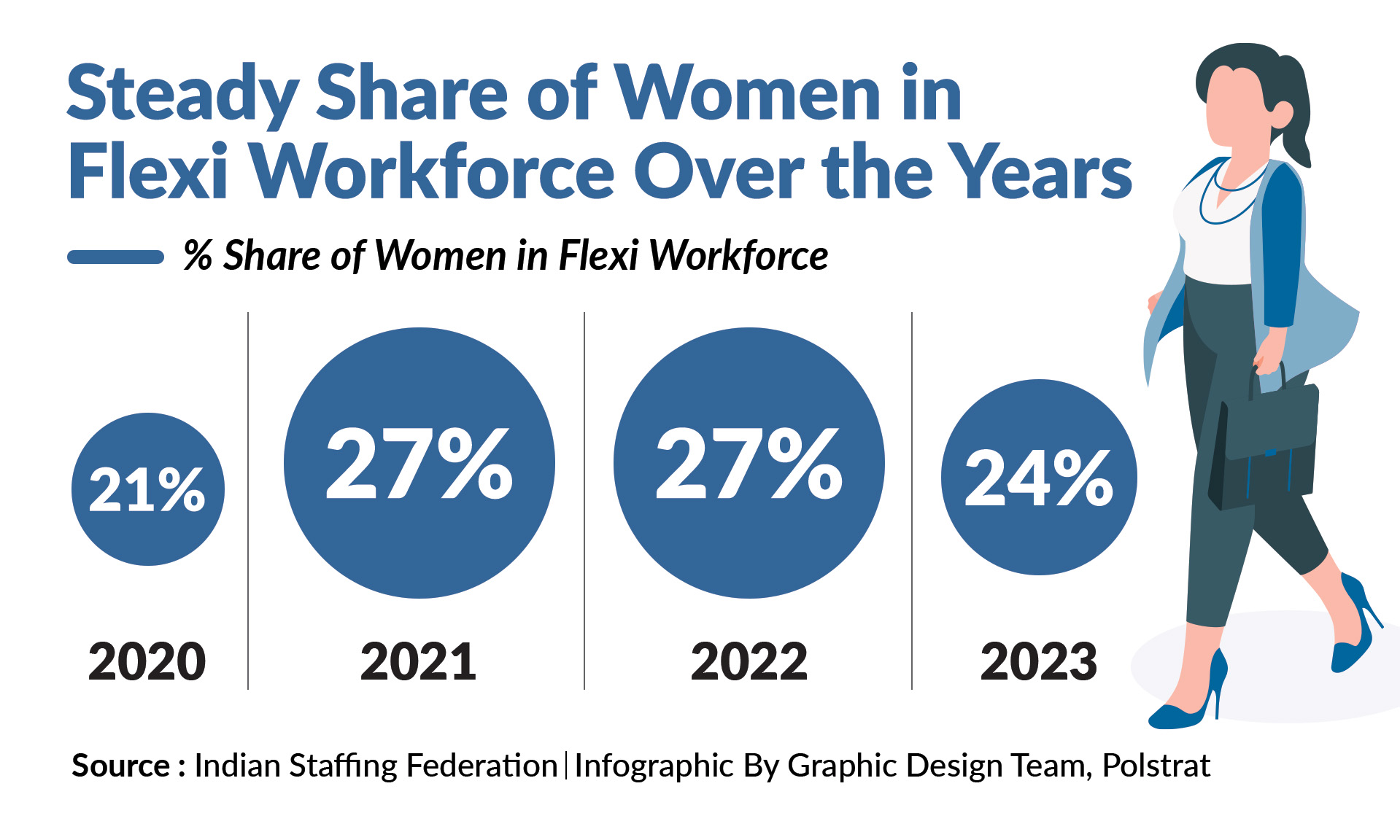
According to Suchita Dutta, executive director of ISF, over the last financial year, the Indian staffing industry provided a significant number of first-time entrants to the job market with their very first formal employment opportunity. According to the industry body, flexi staffing has facilitated employment which is adapted to seasonal, structural, and cyclical changes in the labour market. In a globalised economic scenario where international events reverberate across sectors in the domestic economy, unpredictable changes make a good reason for a blended workforce which includes flexi staff. However, how much this actually benefits the workforce is a key question that demands attention and action from stakeholders such as industry experts, central and state governments, and policymakers. When a large share of the flexible workforce is concentrated in the low-skilled job sector, there is a need to introduce legislative measures related to hiring, firing, occupational security, social security, and working hours. In addition to this, as a larger share of women enter the flexi workforce (evident in women’s participation in the flexi workforce at about 24 per cent in FY 2022-23), measures to supervise the industry will offer benefits not just to employees but to families and society as a whole.